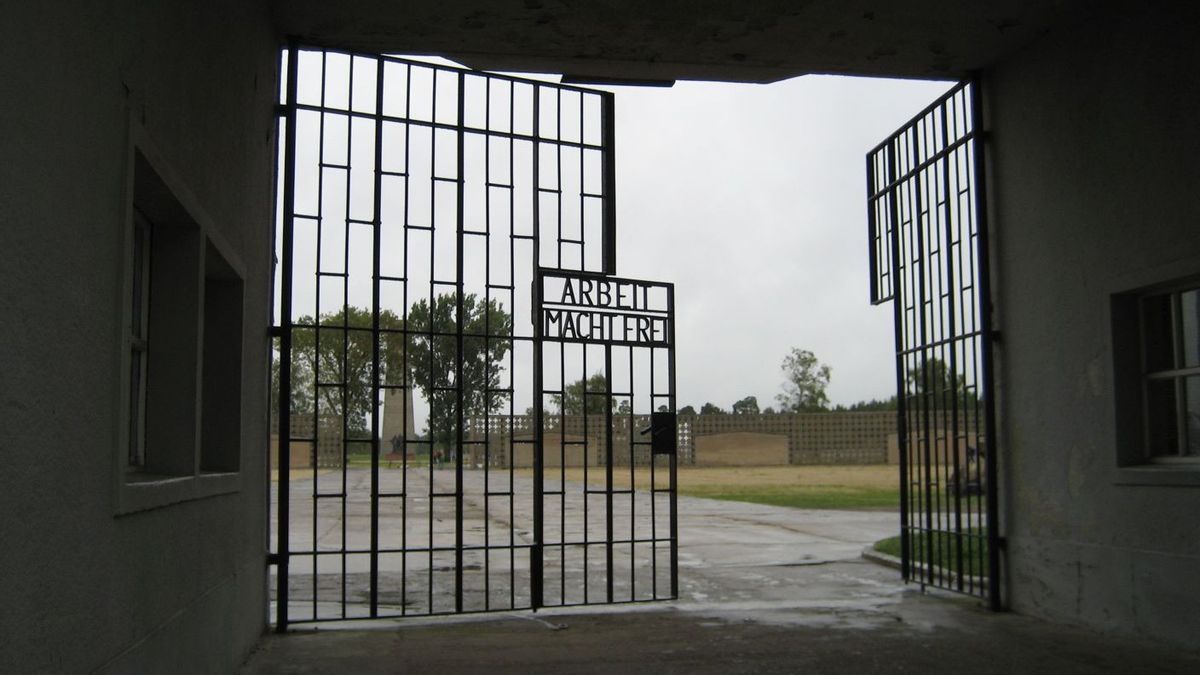JAKARTA - A 101-year-old grandfather, a former Nazi concentration camp guard, has been sentenced to five years in prison for his alleged involvement in the murder of thousands of prisoners.
The man, identified during his trial as Josef S and now identified as Josef Schütz, is the oldest person accused of Nazi-era crimes.
He was sentenced to five years in prison on Tuesday for involvement in the murder of 3,518 prisoners at the Sachsenhausen concentration camp, north of Berlin, between 1942 and 1945.
The head of the court in Brandenburg-Havel told Schütz he was "active for about three years in the Sachsenhausen concentration camp, where you were an accomplice to the mass killings".
"You know that prisoners were killed there. With your presence you support" this action," he said, quoted by Euronews on June 29.
"Anyone who wanted to escape from the camp was shot. So, every camp guard actively participated in the killings," he said.

The defendant remained steadfast when a sentence, higher than the minimum three years for complicity in the murder, was handed down.
“I'm ready,” said Schütz as he entered the previous courtroom in a wheelchair, wearing a gray shirt and pajama pants.
Separately, Schütz's lawyers have announced he will appeal any harsher sentences, delaying the application of any sentences until early 2023 at the earliest.
But given his fragile health, it's unlikely that Schütz will go to jail. The trial process was postponed several times due to his health.
Previously, the former non-commissioned officer of the Waffen SS had never expressed any remorse during the approximately 30 trials. On Monday, he again denied any involvement, asking himself "why he was there", and asserting that "everything about him was wrong".

Schütz gives several accounts of his past, some of which are contradictory. "Everything is torn apart" in my head," he said even at the opening of the trial before being interrupted by his lawyer.
More recently, he admitted to having left Lithuania at the start of the Second World War for Germany, where he claimed to have worked as a farm laborer during the conflict. He swore in court, he never wore the German uniform, but the overalls.
However, several historical documents mention his name, date, and place of birth, proving that he had been assigned from late 1942 to early 1945 to the "Totenkopf" ("skull") division of the Waffen-SS. It is the most popular of the 38 divisions in the Waffen-SS.
Aged 21 at the start of the alleged offences, Schütz is suspected of shooting Soviet prisoners, "assisting and abetting in the systematic killings" in which Zyklon B gas was used, and "holding detainees under hostile conditions".

During closing arguments in May, the chief prosecutor said the evidence was "fully confirmed", accusing him of not only living with the conditions in the camps but of having made a career there.
"There is no doubt that Mr. Schütz worked at Sachsenhausen", insisted Cyrill Klement, before demanding a prison sentence of more than three years minimum for involvement in the murder.
SEE ALSO:
To note, from its opening in 1936 until its liberation by the Soviets on April 22, 1945, the Sachsenhausen camp held about 200,000 prisoners, mainly political opponents, Jews, and homosexuals.
Tens of thousands of them died, mainly due to exhaustion from the forced labor and harsh conditions of detention.
After a long reluctance to prosecute all Nazi crimes, Germany has expanded its investigations over the past decade. Camp guards and other implementers of the Nazi machine could be prosecuted on charges of complicity in the killings. In recent years, four former SS members have been convicted on these charges.
The English, Chinese, Japanese, Arabic, and French versions are automatically generated by the AI. So there may still be inaccuracies in translating, please always see Indonesian as our main language. (system supported by DigitalSiber.id)













